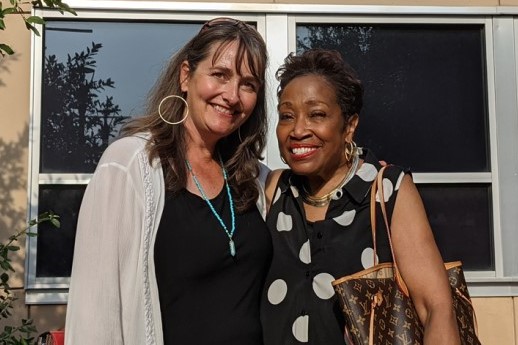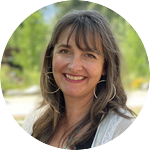
In 2018, knowing the city of Boulder was leaning in to advancing racial equity, I asked my boss, the deputy city manager, if I could lead the city’s racial equity work. I was a project manager at the time, and not knowing what we didn’t know, we defined the work as a six-month project. Very soon after we embarked on our racial equity journey, we determined this was not a project at all, but rather an organizational culture shift. It would take all of our colleagues at every level of the organization to own this work if we were truly going to shift from focusing on classic inclusion and diversity efforts to a model focused on advancing racial equity both within our organization and in the community.
I am proud of our organization’s efforts to date. My colleagues have banded together to create racial equity core teams; a council resolution adopted by our city council in 2019; a host of equity workshops for teammates to learn and grow together; and most recently, the successful adoption of the city’s very first racial equity plan.
As with most local governments, much of this work has been happening on a shoestring budget, and we have had to be extremely creative in utilizing our resources to the best of our abilities. And yet, as the city’s equity program manager, aside from my mantra, “Hard work is hard,” I find myself lamenting to anyone who will listen, “I need more resources! We fund what we deem important!” This is why, when I was asked to host a conversation on working with limited resources at the ICMA Equity Summit, I had to laugh a little to myself. What in the world did I possibly have to contribute when I am constantly trying to find resources of my own?
I decided to shift my perspective about this opportunity, and thought that maybe I could at least get other folx in the room talking about how they are obtaining resources and going about this work. So onward I went.
My first step was to look up the definition of resources on the Google machine: “a stock or supply of money, materials, staff, and other assets that can be drawn on by a person or organization in order to function effectively.” The example sentence, “Local authorities complained that they lacked resources,” gave me an additional chuckle. I guess I am one of those “local authorities.”
The second definition I saw was this: “an action or strategy which may be adopted in adverse circumstances.” This definition led me to start thinking about the city’s newly adopted racial equity plan as a resource itself, one that might be able to help me get the additional resources, or rather, money, materials, and staff outlined in the first definition. The plan is a living road map that is guiding our municipality through the process of prioritizing goals, specifying details, and “assigning resources” to achieve meaningful change. It was a shift in my thinking to utilize a resource to get additional resources.
The third definition I found was this: “Resources are a kind of supply that can be drawn on by a person or organization in order to function and execute plans and projects. Resources can be in the form of money, material, staff, energy, expertise, time, and management, among other things.” I particularly appreciated this definition as I have always considered resources to first mean money, and secondarily, people or staffing. In preparation for the session at the ICMA Equity Summit, I began going through an exercise that outlined the various resources I do have and that I’ve tapped into over the past three years in the following categories: money, materials, staffing, leadership, energy, and expertise. Here is what I discovered during this exercise.
Money
At the onset of our organization’s racial equity journey, there were some dollars allocated to help fund trainings, memberships, and materials, and I knew I needed to leverage those resources wisely. We first set out by joining the Government Alliance on Race and Equity (GARE), which was an incredibly valuable membership opportunity. Their model allows even the smallest of jurisdictions to participate as members due to the way in which they charge for membership. The fee is based on the number of employees in your organization. The bonus is that once a jurisdiction becomes members, all of their employees have access to their online portal, which is rich in both training opportunities and networking opportunities with other communities trying to elevate the same work.
Materials
What about materials? One definition describes materials as “facts, information, or ideas for use in creating a book or other work.” Books, online resources, trainings being hosted by other local communities, and podcasts are just some of the materials I have tapped into and shared with others over the past three years.
Staffing
In regard to staffing, I had no formal staff focused on advancing racial equity at the outset. The GARE model taught me how to create a racial equity core team comprised of colleagues at every level of our organization and representing every department. There were 60 city staff who leaned into our call to action to help advance this work. The ask for our initial core team was to allocate 10 hours per month to help advance this work. This was dedicated time, not “volunteer” time, but a part of their work plan. This team was instrumental in creating a “train the trainer” model for some of our cornerstone classes, including “Advancing Racial Equity: The Role of Government” and the “Racial Equity Instrument Training.” They also helped draft the racial equity plan, host community engagement events to solicit feedback on the plan, and have created a team of community connectors. These community connectors are community members who provide feedback on city initiatives, programs, and policy decisions; and consider how those will impact community members who have been historically excluded from participating in their government.
Leadership Support
I gained leadership support by creating a racial equity guiding coalition, which is made up of members of city council, our city manager, deputy city manager, human resources director, police chief, housing and human services director, and planning director. Not only does the coalition provide guidance to me around this work and help provide strategic planning and implementation of equity initiatives, they also help hold accountable others in formal leadership positions.
Energy
This is a tough one. Like many of you, some days I have more than others, but this is one area where I have a little control. I choose to conserve or expend energy, and that is of course based on time and time management, but it is also so tied to my emotional energy, not just physical. I have been working to better conserve my energy or put it to better use by controlling my calendar more effectively. I continually look at what’s coming up and ask myself if it’s a meeting I need to be in or are there others who might be able to attend in my absence. What speaking engagements do I agree to? What projects do I want to tackle, and which need to be taken on immediately? In this, I have found that people are very forgiving, and it demonstrates the need for additional staffing and financial resources so that it’s not just one person working toward our goals.
Conserving my emotional energy is much more challenging, but I am working hard to learn more about myself. What do I need to do in order to take care of myself? For me, it means going to bed at a decent hour, turning off the news, reading fiction, cooking creative meals, gardening, hiking, and just appreciating the time I have with other people. I listen to my body to understand when I am not feeling my best and make decisions that will help support me rather than zap what little energy I might have.
Expertise
When I refer to expertise, I’m thinking of much more than just my own. Expertise also includes colleagues and organizations who are also doing this important work across the country. ICMA, GARE, and the National League of Cities are all places where I have learned and grown from others in the equity space. Additionally, we are fortunate that our surrounding organizations are leaning into equity, and we can share knowledge, trainings, and tools.
Conclusion
At the end of preparing for the ICMA Equity Summit session, I felt a little better about what I might be able to offer others. And taking stock of all the work we have done (and the resources I have) has been incredibly helpful. What was even more helpful with this exercise is that it helped me tell the story to leadership about what I need more of in order to advance this work. And for me, it still boils down to money and staffing, which is why I am requesting an additional $210,000 during our budget process to fund an equity liaison position, with an additional $60,000 to fund future projects. The plan, which I will remind you, was unanimously adopted by council, states, “It is imperative to allocate appropriate funding to equity programs, including money allocated for staffing and supporting programs.” I am looking forward to letting you know how this goes!

AIMEE KANE is equity program manager for Boulder, Colorado.
New, Reduced Membership Dues
A new, reduced dues rate is available for CAOs/ACAOs, along with additional discounts for those in smaller communities, has been implemented. Learn more and be sure to join or renew today!
